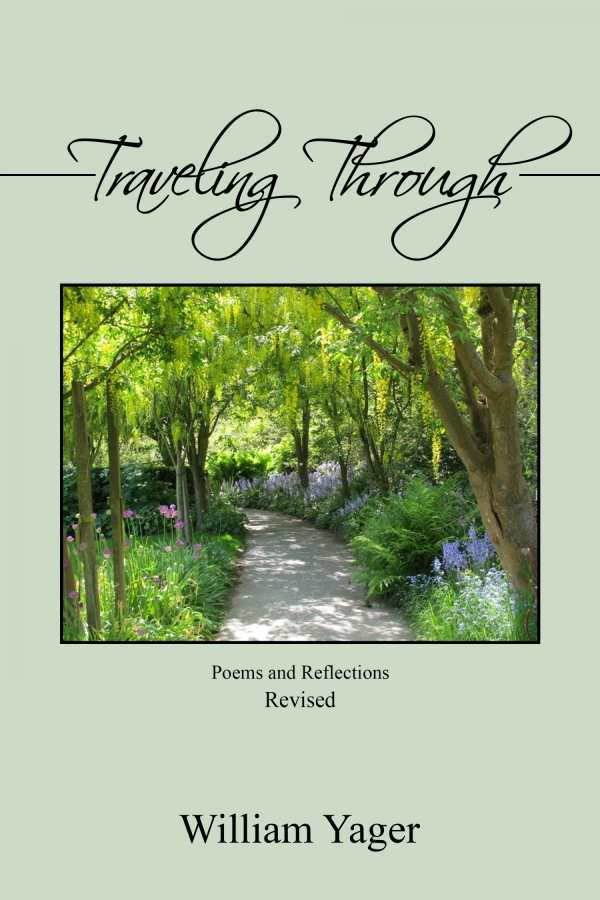Traveling Through
Poems and Reflection Revised Edition
Straightforward, descriptive poems evocatively search for meaning.
William Yager’s poetry collection Traveling Through combines ruminations on life in the modern age with odes to God and the natural world.
Yager contextualizes the work with an explanation of how his private musings have become public poems during his “sunset years.” This personal introduction offers a lens through which to view the collection and sets a tone that is hopeful without being naïve.
The book moves smoothly between shorter, descriptive poems and lengthier pieces about the intersection of spirituality and American culture. Lovely images abound. Brief poems depict birds and flowers, seasons and trees.
Of particular note is “Allium”:
Allium pendulum
right side up
timeless purple gift
from Nature’s clock.
Though it is only eleven words long, the poem crafts an image that is evocative and precise. “Morning Grass” and “Meadow” also effectively create visuals with lines that feel like magnifying glasses held to the minute details of nature.
In other poems, closing lines or words detract from descriptions that, if left alone, would speak for themselves. Questions, in particular, or one-word phrases like “Peace” are unnecessary and take the reader out of the moment.
Sharp critiques of consumer culture and American society are offered with unapologetic honesty. The poem “Blood Money” takes on the Second Amendment with a cutting anger that also leaves room for despair, urging people to action. In the sixth stanza, striking and harrowing lines call forth the Newtown tragedy.
The thread that holds the collection together is its search for and exploration of God in both the modern age and the natural world. For the poet, God can be found in it all: in the suffering caused by American culture, in the salve offered by a walk through the meadow.
Left-leaning Christians will especially appreciate poems like “Christmas Gift” and “The Choice,” both of which describe in detail human failings that are, nevertheless, always forgiven by the “Road Builder’s hand.”
“Boundaries,” the longest piece in the collection, attempts to incorporate too many elements; college football games, world cultures, rivers, and mountains are mentioned, along with language use and Julius Caesar. Though ambitiously seeking to show that God “transcends / all human boundaries,” the resulting poem is more confusing than illuminating.
All of the poems but one are center justified and share the same basic form. “Fall” is the only piece that strays, and its more innovative use of line breaks and staircase-like indentation that allow for a viewing of the white space around the poem is uniquely interesting.
Traveling Through offers musings on God and the natural world with straightforward, descriptive poems that evocatively search for meaning in a complex and often contradictory culture.
Reviewed by
Margaret Fedder
Disclosure: This article is not an endorsement, but a review. The publisher of this book provided free copies of the book and paid a small fee to have their book reviewed by a professional reviewer. Foreword Reviews and Clarion Reviews make no guarantee that the publisher will receive a positive review. Foreword Magazine, Inc. is disclosing this in accordance with the Federal Trade Commission’s 16 CFR, Part 255.

